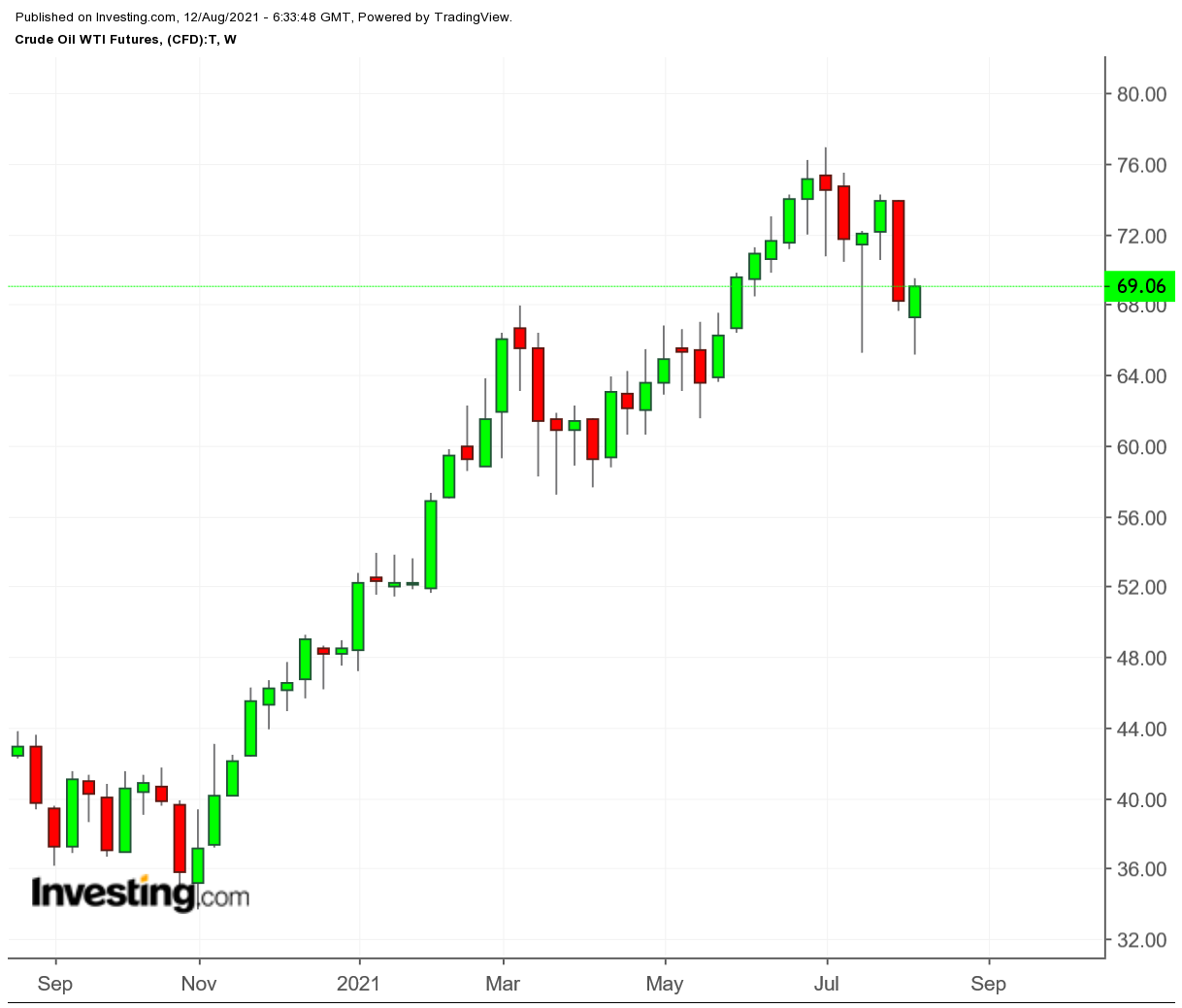News from the White House sent oil prices lower on Wednesday morning after the commodity's price spiked earlier this week. The Biden administration issued a statement calling on OPEC+ to increase oil production to combat rising gasoline prices in the U.S.

According to news reports, the Biden administration told Saudi Arabia, the UAE and other OPEC+ members that OPEC+’s current agreement was “simply not enough,” even though it calls for an extra 400,000 barrels per day to be added to OPEC+ production numbers on a monthly basis between August and December.
The White House document also stated that high gasoline prices are threatening the global economic recovery.
Gasoline prices in the United States are up about $1 per gallon year-over-year, but OPEC+ is not the only culprit for higher prices. In fact, oil prices have come down since OPEC+’s July agreement to increase production.
Additional factors that contributed to the recent price jump include:
- Inflation;
- A drop in U.S. oil production;
- Gasoline supply bottlenecks;
- Rising gasoline demand; and
- Increased cost of ethenol, a gasoline additive which is made from corn in the U.S.
Oil prices dropped in response to Biden’s request, even though there is no indication that Saudi Arabia, the UAE or any OPEC+ members are open to increasing production beyond their existing plan. In fact, oil prices have fallen this month, even hitting a three week low on Monday, based on concerns that demand in Asia, particularly in China, is slowing down.
The market is worried that the rise of the Delta variant of coronavirus will curb demand globally. After OPEC+ countries struggled to finalize their July agreement, it is unlikely that they will want to modify it just because the Biden administration is concerned about the cost of gasoline.
Although OPEC+ has not formally responded, two OPEC+ delegates told Argus that:
“The market, as it stands, is unlikely to be able to accommodate a more accelerated pace of output growth than currently planned.”
Gasoline prices are also likely to come down in the fall as gasoline consumption levels decline from summer highs. As well, refineries will start conducting seasonal maintenance and many, outside of California, will switch over to producing the less expensive winter-blend gasoline.
Oil prices recovered from their initial drop by mid-day Wednesday, but the question remains whether the Biden administration intends to make a serious push for OPEC+ to raise production, or whether this is a political move designed to show that the White House is trying to do something about the rising cost of living facing Americans.
However, there are indications that the Biden team is not too serious about pressuring OPEC+.
- The White House has said it has not asked American producers to increase production, so, clearly, they don’t see supply numbers as a serious problem.
- Unlike its predecessor, the Biden team’s foreign policy has not indicated a willingness to press countries on seemingly minor issues like this.
- This announcement came from the national security advisor’s office, which does not indicate great importance.
Hurricane Watch: We are in the middle of hurricane season. Traders should keep an eye on an Atlantic storm named Fred. Right now, it seems unlikely to cause problems for offshore production in the Gulf of Mexico, for oil transportation or for refining. However, tropical storms are unpredictable and the storm is expected to move into the Gulf of Mexico next week.
